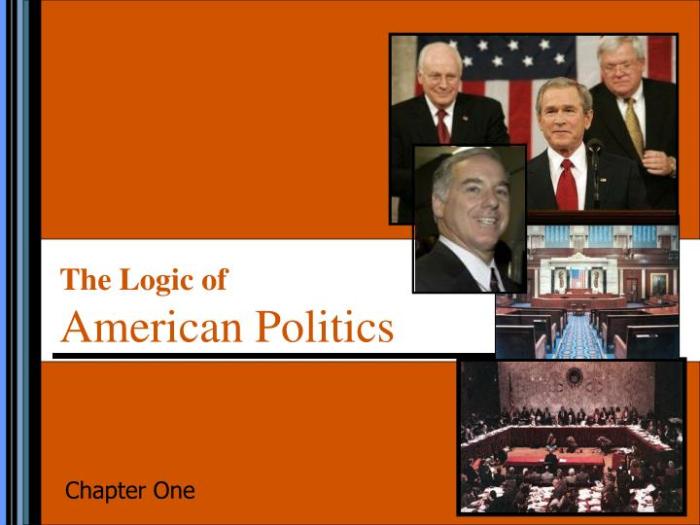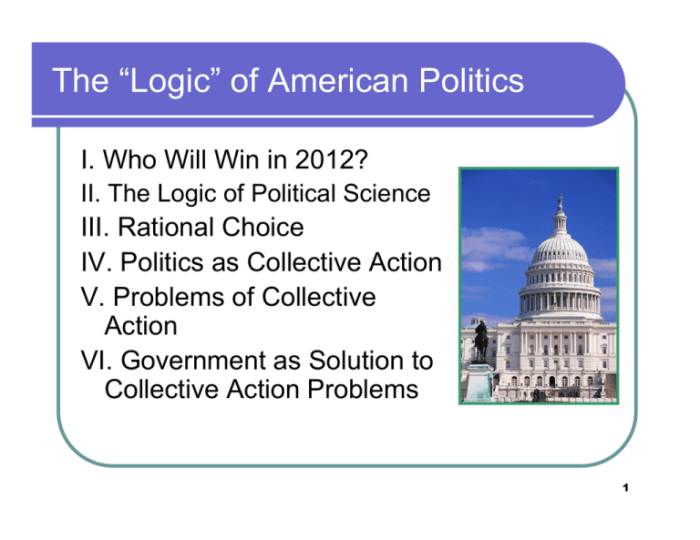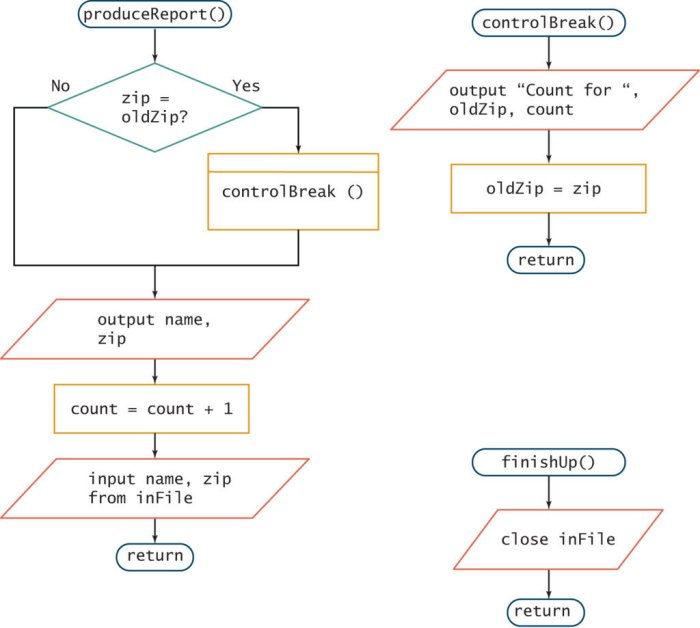The logic of american politics 8th edition – The Logic of American Politics, 8th Edition, embarks on a comprehensive exploration of the American political landscape, delving into the intricate workings of its institutions, ideologies, and behaviors. This seminal work provides an authoritative analysis of the forces that shape American politics, offering a profound understanding of the nation’s political dynamics.
From the foundational structures of government to the evolving nature of political ideologies, this edition unravels the complex tapestry of American politics. It examines the patterns of political participation, the processes of public policymaking, and the profound influence of political culture on American society.
Political Institutions and Processes

The American government is a complex system of checks and balances designed to prevent any one branch from becoming too powerful. The three branches of government are the legislative branch (Congress), the executive branch (the President), and the judicial branch (the Supreme Court).
Congress is responsible for making laws. It is composed of two houses: the Senate and the House of Representatives. The Senate has 100 members, two from each state. The House of Representatives has 435 members, who are elected from districts based on population.
The President is responsible for executing the laws. He is also the commander-in-chief of the armed forces. The President is elected by the Electoral College, which is composed of electors chosen by each state.
The Supreme Court is responsible for interpreting the laws. It has the power to declare laws unconstitutional. The Supreme Court is composed of nine justices, who are appointed by the President and confirmed by the Senate.
Political parties play a major role in American politics. They organize candidates for office and mobilize voters. The two major political parties in the United States are the Democratic Party and the Republican Party.
The American electoral system is based on the principle of one person, one vote. However, there are a number of factors that can affect the outcome of elections, such as gerrymandering and voter suppression.
Political Ideologies and Beliefs

The major political ideologies in the United States are liberalism, conservatism, and socialism.
Liberalism is a political philosophy that emphasizes the importance of individual liberty, equality, and social justice. Liberals believe that the government has a role to play in protecting these values.
Conservatism is a political philosophy that emphasizes the importance of tradition, order, and limited government. Conservatives believe that the government should play a limited role in the lives of individuals and businesses.
Socialism is a political philosophy that emphasizes the importance of social equality and economic justice. Socialists believe that the government should play a major role in the economy to ensure that everyone has a fair chance to succeed.
These ideologies have influenced American politics and public policy in a number of ways. For example, liberalism has led to the creation of social welfare programs such as Social Security and Medicare. Conservatism has led to the reduction of government regulation and the privatization of many government services.
Socialism has led to the creation of programs such as the minimum wage and the Affordable Care Act.
Political Behavior and Participation

Political participation is the act of taking part in the political process. This can include voting, campaigning, and interest group activity.
Voting is the most common form of political participation. In the United States, voter turnout is typically low, but it can be higher in presidential election years.
Campaigning is another way to participate in the political process. Campaigns can be organized by candidates for office or by interest groups.
Interest group activity is a third way to participate in the political process. Interest groups are organizations that represent the interests of a particular group of people. They can lobby elected officials, run campaigns, and file lawsuits.
There are a number of factors that can influence political behavior and participation. These factors include age, education, income, and race.
Quick FAQs: The Logic Of American Politics 8th Edition
What is the central theme of The Logic of American Politics, 8th Edition?
The central theme revolves around the intricate interplay of institutions, ideologies, and behaviors that shape American politics, providing a comprehensive understanding of the nation’s political dynamics.
How does this edition differ from previous ones?
The 8th edition incorporates the latest developments in American politics, including the impact of social media, the rise of political polarization, and the evolving nature of political ideologies.
What is the significance of political culture in American politics?
Political culture plays a crucial role in shaping American politics, influencing everything from voter behavior to the formation of public policy.
